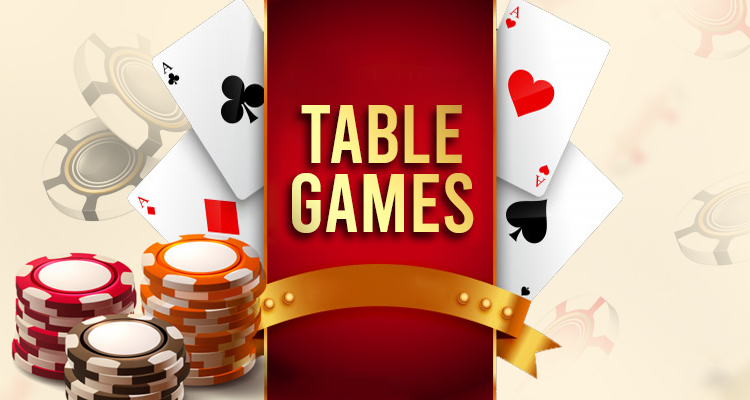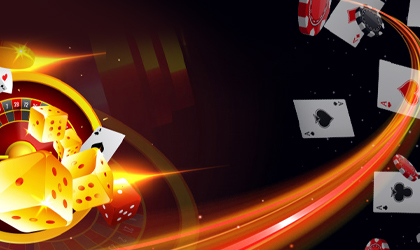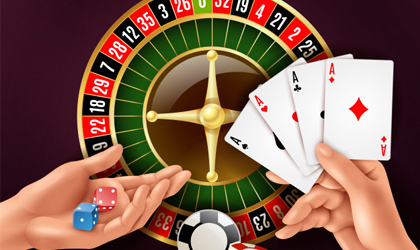New Table Games: Do we often kill what we try to create?

Andrew MacDonald 05:04 Feb 21st, 2006 Games
Introducing new table games onto the casino floor is one of the most perplexing tasks for any casino manager. Unless the game is well proven elsewhere, or there exists pent up demand for the product, it is often a costly, hit and miss exercise.
As casino managers we look at where the game is being played, and the number of tables in each property. Floor space requirements and our own restrictions are examined. Based on the house edge, the hold percentage, expected decision rates and occupancy and average bets, we project comparative performance relative to our average drop per table per day. We review rules and procedures, training requirements, and marketing collateral needs. We assess the proposed fees, lease costs and purchase costs, contractual arrangements. And so the list goes on.
 With so much information to consider, we then "sweat" on whether the game will generate incremental revenue or displace revenue from other games. At the end of the day what often happens is that we act conservatively and place a limited number of the new tables we're introducing into positions where existing games are under performing, thus limiting our exposure to a potentially poor decision. Given that we've put the new games in some out of the way spot, we also seek to reduce introduction costs by not promoting the game apart from some limited signage and learn to play functions.
With so much information to consider, we then "sweat" on whether the game will generate incremental revenue or displace revenue from other games. At the end of the day what often happens is that we act conservatively and place a limited number of the new tables we're introducing into positions where existing games are under performing, thus limiting our exposure to a potentially poor decision. Given that we've put the new games in some out of the way spot, we also seek to reduce introduction costs by not promoting the game apart from some limited signage and learn to play functions.
So do we find ourselves as casino managers caught in the Prisoner's Dilemma*? We want to grow our market for the long term but are continually caught in the short term focus of our business. We feel we do the right thing by giving new table games a try but then are disappointed with the impact they have. In the end we tend to kill what we are trying to create.
To be true leaders in the industry we must be Strategists, Marketers, Analysts, Risk takers, Trusted and superb people managers and Visionaries. When introducing new games we must be marketers and risk takers if we are to achieve our vision. Put the new game in prime real estate to give it maximum exposure, create awareness and trial through innovative marketing and respond quickly to demand by adding more supply as soon as you feel it's necessary, if not before. To be cautious is to fail, while to dare to take risks will bring success. We might not hit the home run every time but at least we will not die wondering if there was a chance of success.
It may be that table games are becoming a thing of the past and will eventually be taken over by technology. But it is certainly interesting that much market research indicates that our customers aged between 21 and 35 actually prefer table games over current slots. The Hard Rock Hotel and Casino in Las Vegas knows this to be true and has created a very successful strategy catering to this market with lower limit tables. Where will the Hard Rock's casino customer of today end up? Maybe not playing Blackjack, as we know it, but instead on some interesting new game that combines a social and interactive experience and provides the chance to win a dream. We therefore need to be actively seeking out these alternatives to protect our future.
Sure we will have a number of failures. A colleague observed that table games were similar to Board games. Think of all the Board games ever created and think of those that are still with us. Chess, Backgammon, Checkers, Monopoly, Yahtzee and Scrabble are the staples. Many inventors have come up with new games in recent times but none have rivalled the success of these old favorites. Which was to say "….why bother?". But this pre-supposes that new products can't be introduced and that these games have not only been with us for all time but will be with us for all time, and that anything else is doomed to failure.
 Now I'm not saying that I'm thrilled with the idea of trying every new table game I see at the World Gaming Congress and Expo. Some are just plain dumb. We still need to analyse the potential success of the new game by enlisting our customers and our staff in pre-evaluation of the game concept and mechanics. This screening process does need to be exhaustive, but once you've decided to introduce a new product at least give it a shot. Be bold, innovative and create a sense of "WOW" around any new offering. Do not go gently into that good night………………
Now I'm not saying that I'm thrilled with the idea of trying every new table game I see at the World Gaming Congress and Expo. Some are just plain dumb. We still need to analyse the potential success of the new game by enlisting our customers and our staff in pre-evaluation of the game concept and mechanics. This screening process does need to be exhaustive, but once you've decided to introduce a new product at least give it a shot. Be bold, innovative and create a sense of "WOW" around any new offering. Do not go gently into that good night………………
* Prisoners' Dilemma The Prisoners' Dilemma game depicts a situation where an individually rational action ultimately results in a non-optimal return. In the Prisoners' Dilemma, the rational strategy for each individual is to choose the option that maximises their return (minimises their time in jail) on the assumption that the other individual will either act 'rationally' (confess) or 'irrationally' (not confess). The dominant strategy is for both parties to act rationally and confess. The dilemma is that if both parties acted irrationally, their payout (in terms of minimising jail time) is greater than the combined 'rational' approach.
Andrew MacDonald is a highly respected Australian expert on Casino Operations and gaming statistics. Several of his works are utilised by the University of Nevada Reno in their Executive Development Program. He is currently employed by Australia's largest casino operator, Crown Limited, as Executive General Manager, Table Games Operations and Development .
Andrew may be contacted at andrewmac@urbino.net.
On This Page



